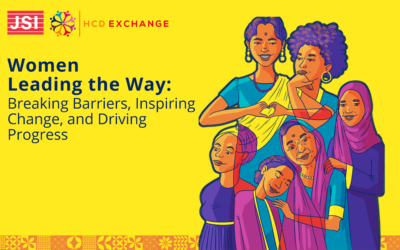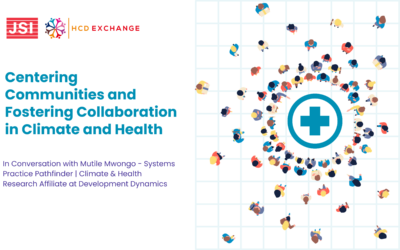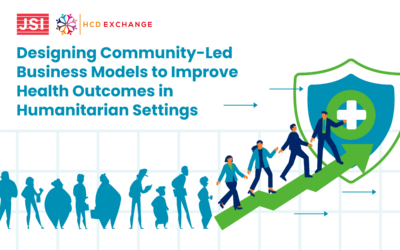By: Muthoni Wachira [1], Nancy Njoki [2], Tariku Nigatu [1], Mokshada Jain [3], Belindar Kwamboka [1]
Organizations: [1]JSI, [2]Girl Effect, [3]Surgo Health
Amid the rapid evolution of health systems, integrating social and behavior change (SBC) approaches with advanced technology is no longer an emerging trend but a vital step forward. Historically, SBC strategies have been instrumental in improving health outcomes by tailoring interventions to community needs. However, the potential to revolutionize health systems is now greater with the infusion of digital tools and artificial intelligence (AI). At the African Society for SBC Summit in July, JSI, Surgo Health, and Girl Effect showcased how these innovations reshape health systems in Africa and Asia, setting new benchmarks for responsiveness and inclusivity in global health.
Key Takeaways
Enhancing Programs with AI to Drive Contraceptive Uptake
Surgo Health’s WISE AI Causal Engine exemplifies how AI can be leveraged to enhance on-the-ground health programs. By integrating behavioral science and systems thinking, this technology identifies key drivers of family planning and contraceptive preferences, enabling stakeholders to make strategic, data-driven decisions. The results have been remarkable, such as in Central India, where a postpartum family planning intervention tripled the uptake of modern contraceptives. This success has led to the expansion of the technology to several African countries, underscoring its broad applicability and impact.
Unlocking Girls’ Potential through Media and Technology
Girl Effect’s innovative approach demonstrates the power of media and technology to address sexual and reproductive health (SRH) needs. Its WAZII chatbot, co-designed with young people, integrates multimedia SBC messaging with digital engagement tools, providing a groundbreaking response to the SRH needs of youth in Kenya. The chatbot’s success, reflected in its extensive reach and impact on contraceptive awareness, highlights how culturally relevant and user-centric digital tools can foster positive health outcomes.
Embedding Behavior Change in Digital Health Initiatives
JSI’s Digital Health Activity in Ethiopia illustrates the importance of embedding SBC interventions in designing, developing, and deploying digital health systems. Using human-centered design approaches and system optimization based on continuous end-user feedback collection, JSI developed and ensured the use of digital tools like the electronic community health information system (eCHIS) and electronic medical record systems. Embedding digital behavior change into these systems has improved reproductive, maternal, newborn, and child health service quality and uptake, correlated with reduced postoperative mortality.
Looking Forward
Integrating SBC strategies with technology advances is essential to more effective health interventions. Several critical factors must be considered to ensure the success of these technologies. First, user engagement is paramount—co-designing digital tools with users, as seen in Girl Effect’s WAZII chatbot, ensures the solutions are relevant and practical. Second, infrastructure reliability is crucial: digital health interventions may falter without a robust technological backbone, such as stable internet and power systems. Third, contextualization is critical—interventions must be conducted in local languages and tailored to cultural contexts to increase accessibility and user adoption, as demonstrated by WAZII’s successful multimedia SBC messaging in Kenya. Additionally, continuous feedback loops are vital, as illustrated by Surgo Health’s WISE AI Causal Engine, which relies on data-driven insights to refine family planning interventions in real time. Lastly, sustainable funding is necessary to scale these solutions and ensure they can be implemented effectively in diverse settings.
By fostering deeper collaboration with communities, ensuring equitable access, and securing robust investments, we can pave the way for a future in which digital innovation and SBC are integrated, driving meaningful and equitable health outcomes across the globe.




